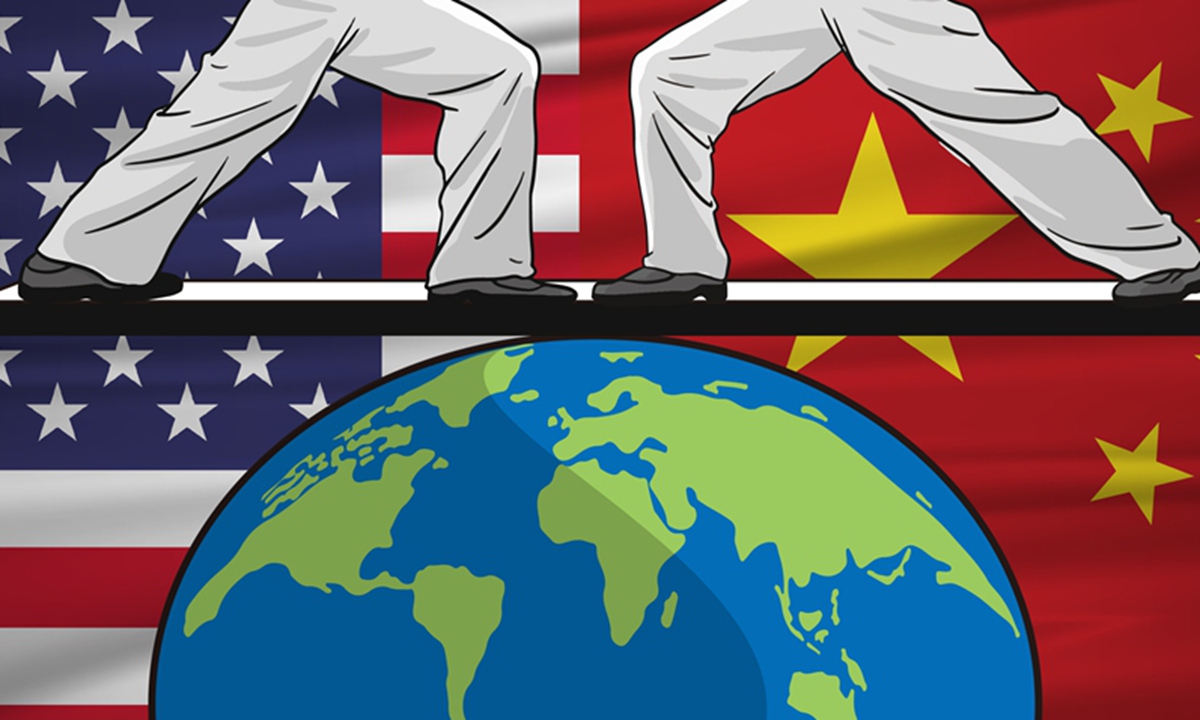
Photo: GT
US diplomat George F. Kennan's 8,000-word "Long Telegram" from Moscow in February 1946 was the basis for the US containment strategy toward the former Soviet Union for the duration of the Cold War. Now 75 years later, a "Longer Telegram" was released by the Washington-based think tank Atlantic Council that aims to give suggestions for the new US administration's China strategy.
Not surprisingly, the report, written by an anonymous "former senior government official with deep expertise and experience dealing with China," identifies China's rise as "the single most important challenge facing the United States and the democratic world in the 21st century." It aims to press China to "operate within the existing US-led liberal international order rather than build a rival order."
The report's malicious attack on China and its attempt to alter China's system are full of Cold War thinking. The anonymous report is trying to create a Cold War atmosphere between China and the US by exploiting the existing ideological frictions between the two and the consensus in Washington regarding China.
So far, the report has not generated much enthusiasm, which shows that there are people in the US that go against the idea of pushing China-US relations into a Cold War-like rivalry that existed between the US and the Soviet Union.
Since US President Joe Biden took office, his team has sent some hard-line messages toward China. During a video conference on Friday, US National Security Adviser Jake Sullivan, Trump-era national security adviser Robert O'Brien and Bush-era Condoleezza Rice all showed their tough attitude toward China. Sullivan said one of the best ways to push back against China is to set a good example.
Two considerations are behind the Biden administration's diplomatic posture regarding China. First, Biden's foreign policy, including his China policy, has not yet formed. Taken into account the domestic political climate, especially the bipartisan consensus on China, if Biden takes a less tough attitude toward China, he might be accused by the Republicans as being weak.
By positioning himself as tough during the early days of his tenure, Biden could have more bargaining chips in future negotiations with China. If Biden and his team adopt a relatively soft tone, they fear that they might be viewed as subject to China.
Are current tough words on China from the Biden team a trend that will be followed by the Biden administration? Biden will stress more on strengthening alliances to counter China's influence. In terms of competition with China in the tech sector, the US is likely to continue its previous policy.
What is uncertain is domestic opinion on China and interactivity between China and the US. During the first year of Biden's presidency, positive interaction with China or worsening frictions could impact the Biden administration's China policy.
Judging from the professional way Biden chose his team, the Trump-era's impulsive, reckless and haphazard policies are not expected to remain. This makes Biden's policy more predictable, although it does not necessarily mean his stance toward China will be more conciliatory. This can reduce strategic miscalculations between the two sides and stop the two from heading toward a military clash. Policy predictability serves the role of the bumper.
Yet, if Biden takes a tougher position to deter China and increase China's costs of responding to the US, it may add to the challenges China faces in dealing with the US. This requires China to craft a comprehensive policy toward the US, take precautionary measures and send a clear signal to the US about its bottom line.
Biden will try every possible way to shake off Trump's influence on US foreign policy, even though the former president is still active. Trump is expected to keep an eye on Biden's foreign policy, including that on China. He may launch some media campaigns and organize some political gatherings with his supporters to pressure Biden. But his clout is now limited.
The author is an assistant research fellow at the China Institute of International Studies. opinion@globaltimes.com.cn
